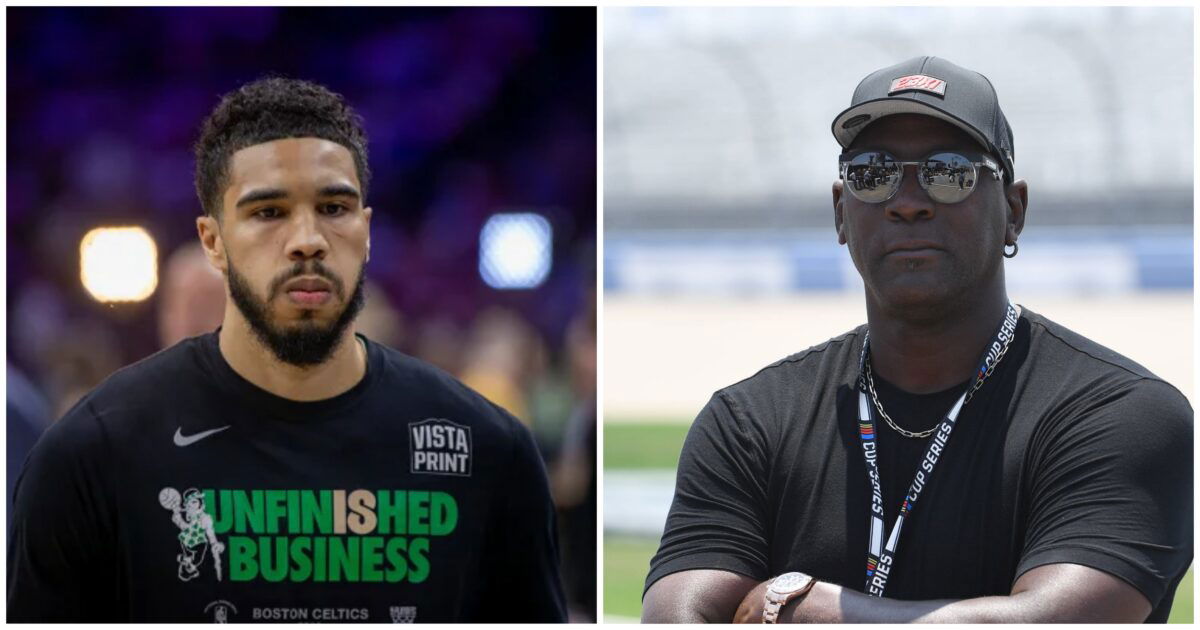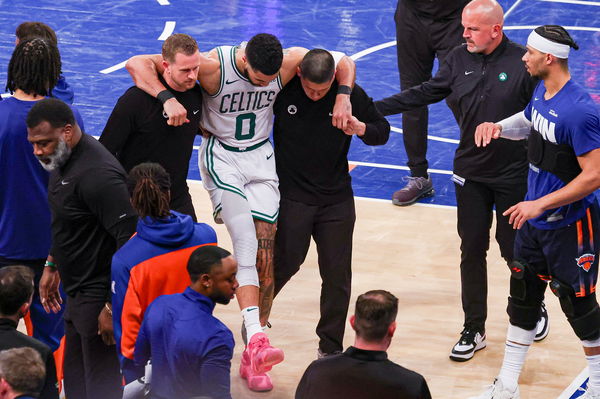
Imago
Credits : Imago

Imago
Credits : Imago

Imago
Credits : Imago

Imago
Credits : Imago
“We won’t put a projected timeline on him for a long, long time… when he hits the court, he is fully ready, and fully healthy. And that will be the priority.” That was Brad Stevens, the Celtics’ President of Basketball Operations, laying down the official, super-cautious company line on Jayson Tatum’s recovery from a devastating Achilles tear. The message was crystal clear: don’t hold your breath for his return. But then, just this week, a new video popped up online that sent a jolt through the Celtics fanbase—a glimmer of hope, yes, but also a fresh wave of concern.
Watch What’s Trending Now!
In the footage, Tatum is seen walking—no boot, no braces, no gear. Just 11 weeks after undergoing surgery on May 13, he was up and moving. That kind of progress is promising, but it also invites a fair amount of scrutiny. Typically, athletes recovering from an Achilles injury ditch the walking boot anywhere between 8 to 12 weeks post-surgery. So yes, he’s right on schedule—maybe even ahead of it.
But here’s where concern creeps in—pushing too fast during this phase can stretch the tendon before it’s ready. And for a player like Tatum, whose game is built on explosive burst, that risk is enormous. Observant fans quickly noticed one unsettling detail in the video—his injured leg looked significantly smaller, a visual cue of muscle atrophy. Social media, of course, lit up with comments like, “His legs are super skinny,” and the blunt, “Leg looking like a toothpick.”
View this post on Instagram
But while fans were busy dissecting every frame of his recovery, one of his biggest partners stepped up with an undeniable show of support. Tatum was rocking a pair of Jumpman 23s in the video, and Michael Jordan’s iconic brand didn’t miss a beat. They dropped a simple, yet powerful, comment on the post: “love to see it.”
This wasn’t just some generic marketing slogan; it was a significant stamp of approval for one of their signature athletes. Tatum, who even has his own Jordan Tatum shoe line, shares a deep connection with the brand, and their public backing is a massive vote of confidence as he navigates the long road back.
And while Tatum is laser-focused on his personal healing, the Celtics’ front office is making a series of high-stakes, risky decisions that are directly tied to his absence.
The Jayson Tatum effect: Boston’s offseason reset
While Jayson Tatum takes careful steps toward a return, the Celtics’ front office has been moving fast and boldly. The roster that won it all in 2024 has already been dismantled. Gone are cornerstone pieces like Jrue Holiday and Kristaps Porziņģis. And across the league, the consensus is—Boston’s moves haven’t exactly inspired confidence.
ESPN and Bleacher Report both gave the Celtics a C-grade for their offseason, a lukewarm reception for a team who were a recent title-winner. The truth? Tatum’s injury forced their hand. As Bleacher Report’s Grant Hughes bluntly noted, there was “no sense in spending $500 million in payroll and tax on a Tatum-less roster that couldn’t contend.” The trades weren’t just cap-friendly—they were survival mode. The Celtics dipped below the NBA’s new second tax apron, avoiding punishing financial penalties, but at a steep cost in talent.
That loss is most glaring in the frontcourt. ESPN’s Kevin Pelton summed it up best: Boston gave up “a massive amount of talent, including everyone taller than 6-foot-8 who played at least 13 minutes in the 2025 playoffs.”

Imago
May 12, 2025; New York, New York, USA; Boston Celtics forward Jayson Tatum (0) is helped off the court by after an injury in the second half during game four of the second round for the 2025 NBA Playoffs against the New York Knicks at Madison Square Garden. Tatum would leave the game with an injury after this play. Mandatory Credit: Vincent Carchietta-Imagn Images
But perhaps the most telling move is the one Boston hasn’t made—applying for a Disabled Player Exception for Tatum. That cap relief tool could’ve helped sign a temporary replacement, but the Celtics passed. According to a team executive, the franchise is being “brutally honest that we aren’t the same level of team without Jayson.”
The decision signals a bigger shift in philosophy. Boston isn’t patching holes for a short-term run. They’re treating this season as a gap year, punting immediate contention to preserve financial flexibility. “You can’t be over the second apron and not a title contender,” said one exec. “It’s just poor management.”
That gamble has fueled all kinds of speculation, including chatter about free agent Ben Simmons, a potential low-risk, high-reward signing to help weather the season. Amid all this uncertainty, Tatum remains a North Star for the franchise. Even off the court, his presence is felt. At his recent youth camp, he spoke to kids about what it means to be “the guy”—a quiet, powerful reminder of the culture he continues to build, even while sidelined.
The Celtics may be hitting pause competitively, but Tatum isn’t. Every step he takes—every carefully watched video clip—is one closer to the comeback they’re all waiting for.

